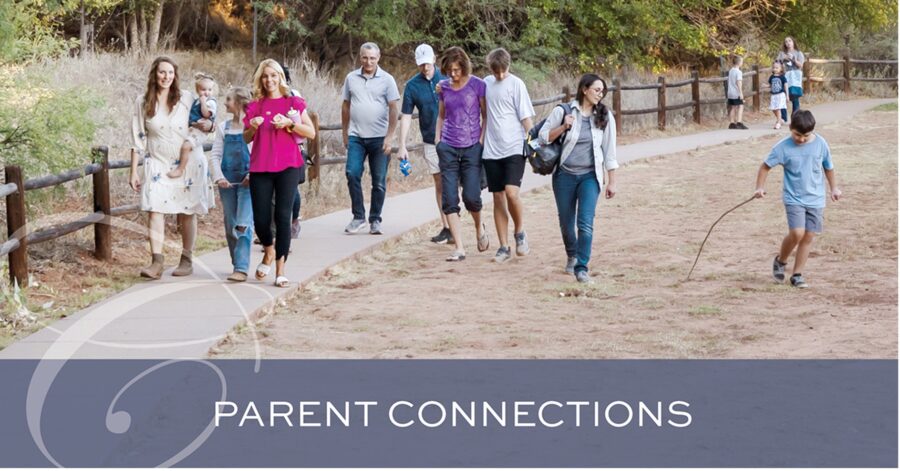As classical homeschool educators, our task is not merely to instruct but to cultivate in our children the lifelong art of learning, empowering them to pursue any subject confidently. By modeling the stages of learning, we also deepen our own understanding and redeem our own education. But how do we, as educators, continue to grow in classical teaching methods? How do we more effectively embody and impart the timeless principles of classical education to our students or children?
The art of teaching classically is best learned with mentors who have practical experience using these methods. Practice is essential to truly mastering the rhetoric stage of education. The Classical Learning Cohort (CLC) provides a supportive space for educators to refine their approach, ask meaningful questions, and receive key feedback.
“Educating the mind without educating the heart is no education at all.” Aristotle.
Whether you are new to classical homeschooling or an experienced Director looking to deepen your impact, the CLC elevates your skills to teach confidently and effectively. To understand why investing in your own professional development as a classical educator is important, let’s dive into what it means to teach classically and how the CLC brings you to the next level as an educator.
What is Classical Education?
Let’s get back to basics. Before we can discuss how to teach, we must remember what we are teaching. What is classical education?
Classical education is a proven method of learning that emphasizes the development of critical thinking, eloquence, and virtue through a structured, three-stage model known as the Trivium.
This model includes the Grammar stage (focused on foundational knowledge), the Logic stage (centered on reasoning and analysis), and the Rhetoric stage (developing persuasive expression).
The goal is to teach students how to learn, equipping them with the skills to pursue truth, goodness, and beauty throughout their lives. Classical education fosters a deep engagement with timeless ideas, cultivating wisdom, virtue, and intellectual curiosity.
The Role of Classical Pedagogy
Just like doctors learn how to treat patients and police investigators learn how to solve crimes, educators learn the art of teaching. This is the definition of pedagogy, and it comes from the Greek words paidos (child) and agagos (leader). To teach means to lead a child.
As parents, we have been leading our children since birth, and classical pedagogy is the natural bridge from experiential learning to intentional teaching practices that are designed to foster deep, lasting learning and the development of virtue.
But how do we learn how to teach our children to learn? We follow the classical method and seek out mentors who have experience in classical pedagogy.
This is modeled in Classical Conversations weekly community days, especially in the Foundations program. Parents sit in class with their students and watch as the tutor models the 15 skills of learning. The principles of pedagogy are also exhibited at the Classical Conversations Parent Practicum.
Experienced mentors model the classical teaching methods, such as fostering Socratic dialogue. They offer insights into how to adapt these practices effectively for different learners and contexts, provide feedback to refine teaching techniques, and help educators master the art of leading students through the stages of the Trivium.
Why Invest in Your Growth as a Classical Educator?
The investment you make as an educator has exponential benefits for the students you lead. Improving as an educator leads to more effective and inspiring teaching, keeping in mind the goal that education is a formation that shapes a child’s heart, soul, and character.
Investing in personal and professional growth as an educator holds immense lifelong value. There is a deep satisfaction in redeeming your education as you educate your children.
Developing your classical pedagogical skills not only enhances your ability to connect with students, fostering relationships built on trust and empathy, but professional growth also equips you with innovative tools that sharpen your leadership skills.
So, now that we know what classical pedagogy is and its merits, how do we get it?
Introducing the Classical Learning Cohort (CLC)
The Classical Learning Cohort (CLC) brings together small groups of Classical Conversations parents who are building confidence in their roles as educators in their homes and leaders within their homeschool communities.
In a nurturing and supportive environment, participants learn from experienced mentors how to apply classical education techniques effectively. The CLC offers an opportunity to refine teaching skills, connect with fellow lifelong learners, and gain valuable insights to teach with confidence.
Through collaborative learning and mentorship, the CLC helps parents embrace the principles of classical education from a Christian worldview and equips them to lead their children’s education with greater assurance and purpose.
How Does the CLC work?
The Classical Learning Cohort is divided into four semesters:
- Invitation
- Form
- Assessment
- Catechesis
Cohorts are comprised of small groups of six students and a trained mentor. Groups meet online two times per month, six times per semester. Classes provide practice, collaborative feedback, and affirming friendships.
CLC is for both new educators and seasoned Directors looking to refine their teaching. The Classical Way Cohort is the perfect introduction for new homeschooling parents just starting in classical education.
Benefits of Joining the CLC
Taking on the role of educating your children can be intimidating. Doubts like “I don’t have a teaching degree” or “This is so different from the way I learned in school” can hold parents back from claiming their role as their child’s best teacher.
The Classical Learning Cohort provides a way to overcome the doubts of teaching inadequacies. Here are some of the benefits of joining the CLC:
- Professional Development: The CLC provides the classical education tools to help you focus on form and assessment. These teaching skills allow you to engage your students, craft quality questions for students’ personal discovery, and map student progress in their learning journeys.
- Practical Experience: Mentors guide cohort members to develop lessons that follow a form and structure that focuses on a main idea. Weekly practice during meetings allows each member to gain confidence and incorporate feedback for improvement.
- Networking: The CLC encourages a hospitable learning environment where dedicated parents can come together to form friendships and community. There is even an annual Classical Learning Cohort retreat where members reunite in person to fellowship together!
Testimonies from Educators in the Classical Learning Cohort
Sometimes it can be hard to take the plunge when investing in our own education and pedagogical principles when our attention is pulled in so many directions. Here is what other CLC members are saying about the benefits of their semesters:
“I feel the Cohort added another layer of learning. I loved each week of class and the tools I collected over the 3 semesters. I felt I was a better communicator, listener, assessor, and teacher in my home with my girls, in my Challenge class with my students, and even in my Sunday School class with my 1st graders (to name a few)…” Bethany M.
“After years in Classical Conversations, I have collected many conversational and classical tools to use in teaching at home and tutoring in community, and the CLC has given me a toolbelt to gather and integrate these tools for intentional conversations. … now feel more equipped to guide our conversations more intentionally.“ Aimee S.
“This has been helpful and fulfilling. I have learned a great deal about the classical model of teaching as well as best practices and form.”
Take the Next Step: Invest in Your Growth as a Classical Educator
We ask our students to be engaged and invested in the learning put before them. We want them to see the opportunities they have been given to enrich their lives with truth, beauty, and goodness. And we challenge them to be eager to learn.
Are we asking the same of ourselves? The Classical Learning Cohort is the next step in advancing your skills as a classical educator. This accessible pedagogy program provides an opportunity to make a lifelong impact on your students, both at home and in the community, by leading them with a sense of wonder that inspires worship and cultivates wisdom.
Are you ready to start sharpening your skills as a classical educator? Join the Classical Learning Cohort today.
Not yet a Classical Conversations member and interested in our community-based approach to homeschooling? We’d love to hear from you! Learn more about Classical Conversations homeschooling..




